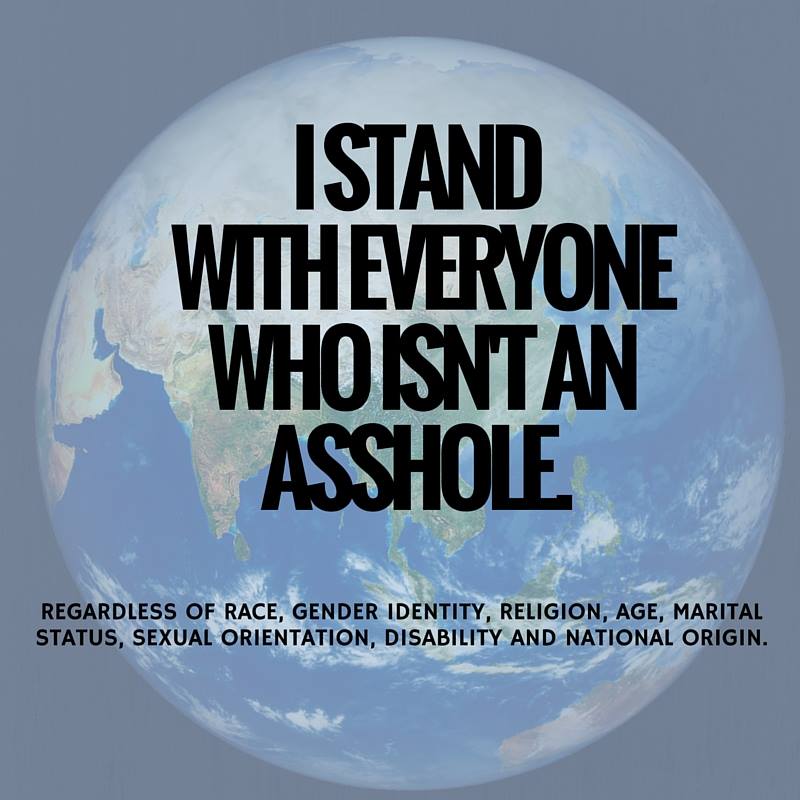"Hey all...
Thanks for the lively debate. But there comes a point when we have to step in and start deleting comments and, in some cases, banning people from our page. This isn't an effort to "censor" the discussion. This is an effort to remember the rules of basic human decency. We won't tolerate hateful, vulgarity-laced, demeaning or threatening posts in any way, shape or form. If we wouldn't allow the comments on our radio station, why would we allow them on our Facebook page? If you have any questions or concerns, please don't hesitate to call me. - Joe"
As most people are aware now (and it's starting to gain international attention), there have been more than a few stories done about the comments seen in the aftermath of Sandra Jansen crossing the floor from the PC Party to the NDP.
While you may not agree with the decision, and you may hate it, and you may hate her, it still doesn't give anyone the right to spew the vitriol we've seen. In the past few days, I've screen-grabbed some of the comments.
Just a smattering of the comments found about yesterday's #ABleg news on the #AlbertansAgainstTheNDP Facebook page. Just. Wow. :( #yyc #yeg pic.twitter.com/A5sQvLqLBm
— Joe McFarland (@JoeMcFarland) November 18, 2016
Y'all were shocked by the 1st smattering of post-#ABleg floor-crossing comments. How about a 2nd helping of #AlbertansAgainstTheNDP. #yyc pic.twitter.com/S5zodIB6fD
— Joe McFarland (@JoeMcFarland) November 18, 2016
Example III of "Just Another Day in #ABleg". The middle comment is funny, as it's not a closed group. But I digress... #yyc #yeg #yql pic.twitter.com/SyEhSy6B0h
— Joe McFarland (@JoeMcFarland) November 23, 2016
Why? Because these are real people throwing all sorts of comments at real people. There's no filter. Again, there's a difference between political correctness and human decency. It's unacceptable.
And don't get me wrong, this has nothing to do with Liberals, Conservatives or any party or political stance. It's unacceptable, no matter who the target. These kinds of comments and debates stand in the way of real talk, real debate and real progress. These kinds of comments can be seen from all sides, it just so happens that the "right" has been more guilty of it lately, and more loud about it as well.
The other part of this that I can't understand is why people believe this is a matter of growing a "thicker skin." That's not the answer, at all. If you want to base this debate on gender in particular, you're basically accepting that you'd be willing to tell young boys everywhere that it's okay to be demeaning and threatening to women. You're also telling young girls everywhere that it's "tough luck" and they will have to learn to live with it. This is no different than the discussion about sexual assaults. Instead of focusing on the root cause, we go fishing for excuses like "she was dressed provocatively" or "boys will be boys." No. Not even a little bit. We should be expecting better from everyone, and teaching our children about respectful dialogue and debate.
As I've alluded to in a past blog, I don't know why anyone would be willing to be a politician nowadays. Not only are you putting your life out there for the world to see, but now you're also subjecting your life to keyboard warriors who have no desire to add anything to a discussion. And those who actually want to be constructive in their comments are drowned out by the loud extremes who demand their voice be heard. And they get to be heard, because no one is willing to call them out for their behaviour, which is further fueled by likes and retweets. So those who actually want to be constructive leave the debate, because they're not being heard and don't feel like bashing their head against a wall because they know they're fighting a losing battle.
Here's the big problem I'm seeing: we've waged a war between social and fiscal policy. As I've said before, somewhere along the line, these have become mutually-exclusive terms. We're playing the worst game of "He Started It". Apparently, you can spew hatred if you or someone you know has lost a job or feel the government hasn't helped you during the recession. On the flipside, you can turn a blind eye to the financial realities hitting many people hard because they're not as educated as you or because they "had it coming" making a career choice in oil and gas.
Neither is correct.
At some point, we have to accept that others have differing viewpoints. We have to engage in thoughtful discussions about these differences, to come to a better understanding of the situation as a whole, instead of constantly retreating back to our own echo chambers because it's the safest place to be.
It's why the comments I posted those screen-grabs. The language makes you uncomfortable? You don't like the swears?
Guess what?
They're real comments. Directed at real people. This isn't some game where you can belittle or threaten someone for your own enjoyment.
This is real life.
